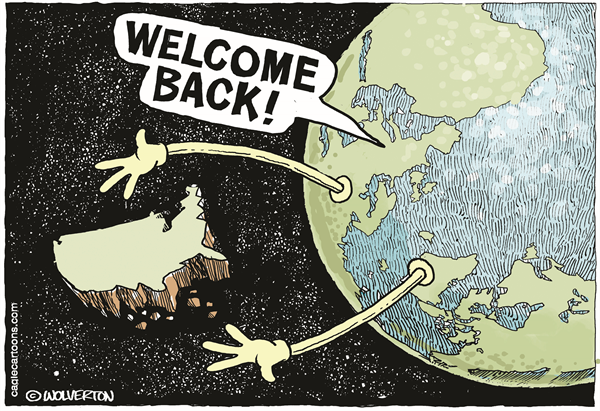
Joe Biden’s character and decency are the needs of this time not only in the US but also for Europe and most of the world.
His skills when he occupies the Oval Office next year will be sorely tested because restoring trust in US leadership requires crossing mountains of distrust within and outside the US.
A central challenge now is how he will respond to the urgent need of liberal democracies everywhere for the US to again place its power behind them.
This is urgent because more vacillation after four years of Trump’s erosion of liberal values could give the longer-term upper hand to authoritarian models like those of China and Russia.
American voters have managed by a sliver to stymie a would-be authoritarian who was unravelling liberal democracy in America thread by thread.
By so doing, they have empowered many peoples around the world to resist authoritarian regimes. Biden should stand with them shoulder to shoulder.
The value that a majority of Americans placed on Biden’s character to deliver victory over Donald Trump is a role model for many of the world’s voters.
Failure to put the brakes on illiberal democracies and authoritarian models of government around the world could trigger faster decline of Western influence at a time when its economic power is already reduced in relation to other countries.
The most likely consequences of more authoritarians would be armed conflicts and violations of human rights and dignity, including less international cooperation to fight under-development, hunger and epidemics.
Germany’s Angela Merkel and Foreign Minister Heiko Maas welcomed Biden’s promise to restore multilateral cooperation because it would help the West to “play as a team again” and work “side by side”.
But officials close to Ursula von der Leyen, President of the European Union Commission, warned that there would be “no return to the good old days”.
Biden’s aides signal that he will put first focus on dealing with the coronavirus in the US and the many rifts separating the American people. Waiting in the wings will be many points of friction with Europe including handling Covid-19, climate change, rules for the new digital world, and reforming the rules-based multilateral system.
Biden has said his first international acts will be rejoin the Paris agreement on climate change and the World Health Organization. But the Senate’s likely Republican majority may make it hard for him to fund alternative energy investments or authorize new funding for the WHO.
The President-elect has also signaled that he may rejoin the nuclear deal with Iran in exchange for new concessions. Again, hurdles in the Senate will not be easy to overcome.
Of course, Europeans would like Biden to lead the West as a team especially in trade and security relations with China, Russia and Iran. That is mainly because without the US, they have almost no trade clout against China and security clout against Russia and Iran.
US policies have pivoted away from Europe to the East since President Barack Obama. China, Japan, Taiwan, South Korea, South East Asia and India will continue to be Biden focal points since he is an Obama acolyte.
Each foreign policy goal has its own specific knots that must be untangled. But the underlying foundations of success are the legitimacy and soft power of Western liberal democracy.
Those foundations must be reinforced continuously. Weakness will free authoritarians to use the high technologies of our epoch to more effectively surveil and oppress their peoples to stay in power.
That is already happening in China, Russia, Poland, Hungary, Slovenia, Brazil and several countries in the Middle East, Africa and South America.
China’s people cannot run with the example set by American voters but citizens in most other countries know now that votes cast in a democratic poll can unseat an unwanted regime peacefully.
People outside the Western democracies live against a continual backdrop of apprehension that transitions of power will not be peaceful because of the illiberal ways in which their electoral systems work.
Free and fair voting even if challenged in the courts is a bulwark protecting the rules and human rights-based world order established after World War II. It brought prosperity, better health and shared knowledge to billions of people everyone and no better system has been found despite its imperfections.
















